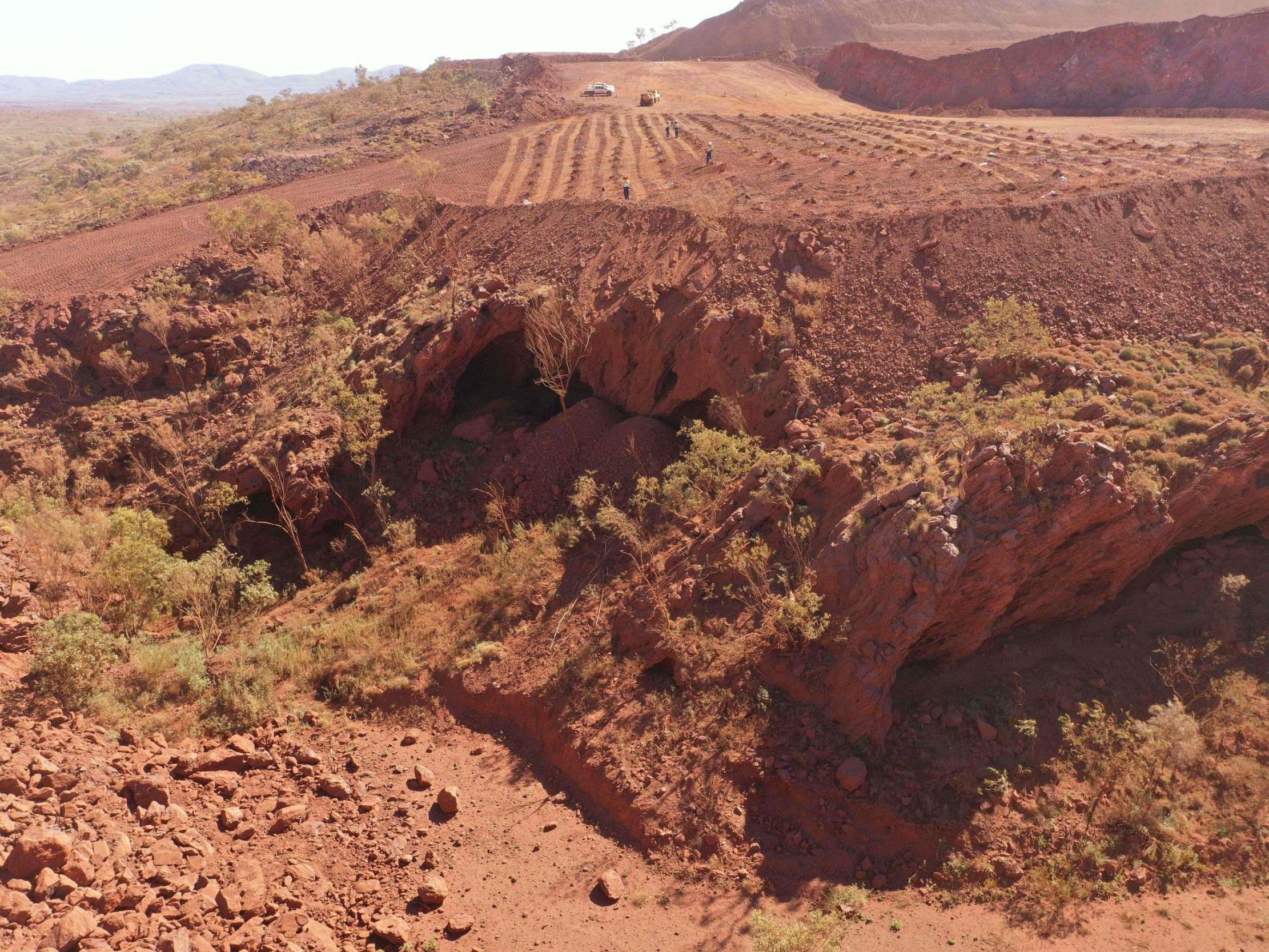In May this year, Australian mining corporation Rio Tinto demolished two 46,000-year-old rock shelters at the Juukan Gorge in Western Australia. The ancient rock shelters were deeply sacred for their traditional owners, the Puuti Kunti Kurrama and Pinikura people, and the demolition represents a violent attack on their cultural and historical heritage. Tragically but perhaps unsurprisingly, their rights have been subsumed to Rio Tinto’s hunger for resources and profit.
Rio Tinto was granted permission to demolish the rock shelters in 2013 without any consultation with its traditional owners. A subsequent archaeological excavation discovered evidence of human habitation dating back 4000 years, including a bone tool and a braid of human hair with DNA connecting it to the contemporary Puuti Kunti Kurrama and Pinikura people. In spite of these findings, however, the PKKP was unable to appeal the decision due to the outdated Aboriginal Heritage Act of 1972.
Rio Tinto has subsequently apologised to the Aboriginal community, saying they are “very sorry for the distress we have caused”, claiming to have been unaware of the significance of the site for its traditional owners. The mining corporation has also stressed the importance of rebuilding its relationship with the PKKP, yet it is hard to see how it will be able to recover a relationship of trust with the Aboriginal communities they have failed.
Such an apology is poor compensation for the irrecoverable and devastating loss of the sacred rock shelters and indicates Rio Tinto’s policy is to act now, apologise later. Rio Tinto has previously worked to present itself as a relatively benevolent mining company. However, its efforts to build a good relationship with the traditional owners of the land have proven to be utterly performative: nothing more than an exercise in ethical branding. While the demolition was technically legal, it demonstrates an utter disregard for the PKKP people’s right to their land and cultural history.
Reconciliation Australia, an organisation which works to promote cohesion between Aboriginal Australians and wider Australian society, has responded to the demolition by ending their partnership with Rio Tinto. In a statement, the organisation described the demolition as a “breathtaking breach of a respectful relationship” which has caused pain for “First Peoples and their allies across Australia and the world”. Activists have gathered outside Rio Tinto’s offices in Perth to express their outrage and protest this act of violence.
What you may not realise is that the University of Leeds also has a part to play in the demolition of the Juukan Gorge rock shelters. A Freedom of Information request last year discovered that the University holds £883,000 of investments in Rio Tinto. The University has justified its continued investments in Rio Tinto on the grounds that “Rio Tinto has no significant exposure to fossil fuels.”
Whilst it is true that Rio Tinto has sold its coal and thermal assets, it is far from the eco-friendly image it wishes to portray. In fact, the greenhouse gases generated through their mineral extraction vastly exceed the greenhouse gases previously generated through their fossil fuel assets. Moreover, the problem with Leeds’s investments in Rio Tinto goes beyond their environmental impact to their impact on Aboriginal communities.
The University of Leeds must confront the violence against indigenous communities perpetrated by mining companies such as Rio Tinto and divest immediately. Otherwise, we as an institution are painfully complicit.
Anna Windsor
Image: PKKP Aboriginal Corporation/AFP.

